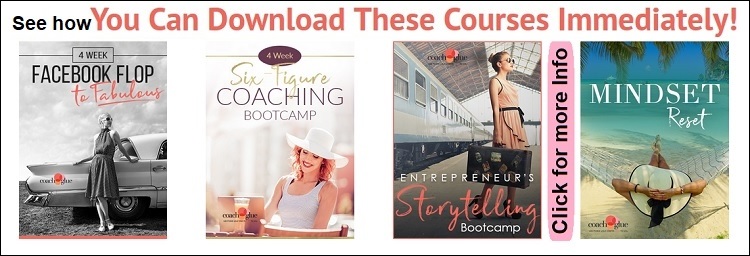How to Make People Buy Your Product
Understand Why People Spend Money

When it comes to creating marketing messages, especially those that trigger emotions, it helps to understand the reasons why people spend money in the first place. If you can understand why your audience opens their wallet to buy, you can trigger them to do so whenever you want them to.
So here are the 8 reasons why.

They Spend Money to Portray an Image
People want others to perceive them in a certain way. They buy to have a better version of themselves. That need often drives them to buy things to help them maintain or improve that image, not only for others to see them that way but also to see themselves that way.

They Spend Money to Avoid a Bad Feeling
Whether it’s the idea they’ll miss out on something awesome, or some other bad feeling, avoiding a bad feeling is a powerful motivator to buy something. If you can show how your product or service helps your audiences avoid a bad feeling, they’ll be more likely to buy.

They Spend Fortune to Gain or Earn Freedom
A good example is a housekeeper or virtual assistant. Is a housekeeper selling a clean home or more time? Is a virtual assistant selling document processing or more time? If you can be clear about what it is you’re really selling, you can and will entice your audience to buy from you more often.

They Buy to Fit In With the Community
Everyone likes being part of the “in” crowd and part of a community. If making a specific purchase will make them more of a part of the community, they will make it happen.
We as humans need to belong — and we’ll take any irrational measure to justify our sense of wanting to be ‘a part of’.

They buy for Instant Gratification
According to Wikipedia, gratification is the pleasurable emotional reaction of happiness in response to the fulfillment of a desire or goal. It is also identified as a response stemming from the fulfillment of social needs such as affiliation, socializing, social approval, and mutual recognition. People like getting what they want when they want it. If you can offer them an instantaneous way to give them what they want, they will most certainly take the bait. The important thing is to deliver on your promises.

They Buy to Gain a Sense of Power
When people buy something they view as potentially life-changing, they feel powerful and in charge of their lives. If you can offer something super special that solves a very specific problem and evokes feelings of power in your audience, you’ll have a winner on your hands.

They Spend Money to Prove or Gain Self-Worth
Some people, maybe people in your audience, lack self-worth and need a way to get it. If you can offer them that feeling when they buy your products or use your services, you’ll sell a lot.

To Solve a Problem
One of the most obvious reasons people spend money is to solve a problem. Show them how your product or service solves their problems, and they’ll buy from you when the price is right.
It’s important to study your audience so that you know how to trigger these feelings within them, and know which ones they use when they choose to buy. If you can find the trigger that keeps your audience from saying no, you’ll explode your business beyond your wildest dreams.
The Number One Emotion You Want to Trigger

If you can get this one thing right you can explode your business. It’s the one emotional marketing trick that you want to exploit and get right – getting your audience to trust you. Trust is the one emotion that makes your audience want to give you money. Money is very personal and your audience must trust you to give you some of it. Here’s how to earn that trust.
Publish Relevant Content Regularly
Showing that you’re dependable will go far in helping to develop trust with your audience. If you publish blog posts, email newsletters, or other material regularly, it will prove that you’re in this for the long haul. And this helps push you to “authority” level and will cause people to trust you more.
Tell Both Sides of the Story
When you are giving examples for anything, whether product or service, telling the pros and cons is always a good way to get people to trust you. If you are able to be truthful about the drawbacks of your own services or products or those that you recommend, your audience will trust you as the real deal.
Always Disclose Your Biases
Should you are doing a review on a book, product, service or anything else, it’s always important to tell the viewers the truth about any biases you may have. If you were given the item free to review, say so. If you were paid for your review, state it. Not only will this help people trust you better, but it’s also the law.

Avoid Over-Pitching Products
When you always revert to sales language in all your content, people get tired of it. They expect a sales tone when looking at a sales page, but not when reading a blog. Be very careful not to confuse the two. Yes, you want a call to action, but you also want to avoid turning away viable audience members.
Under Promise and Over Deliver
The danger of sales pages is the possibility of overstating what the product or service offers or the problems it solves. Instead, ensure that you can deliver even more than they expected once they purchase. Why? Because you want them to buy from you again and you want them to tell others about you. Word of mouth is the ultimate way to get the trust of others.
Show Your Face
People trust those whom they can see. Online that can be more difficult, but if you post a picture of yourself and keep it updated, it will help them to trust you more. They’ll see you as a real person instead of as a heartless business entity.
Engage in Real-Time

Beware of too much automation when it comes to social media. You want to engage with others in real-time. This will further the trust that your audience is developing with you. They will feel important when you answer questions personally and find ways to engage in real-time.
Make Videos
The next best thing to real life is a video. Videos help show what you know as if you’re with the person live. You can actually do an event live on Google Hangouts, then post the video later. This gives you the best of both worlds. Live engagement with the Google Hangout and recorded videos for others who missed it the first time around.
Developing trust is a process; it’s a long-term marketing strategy that will pay off again and again. When you get just one person to trust you, they will tell ten others, and those ten others will each tell ten more people. The trust will spread far and wide until the very mention of your business name will mean trust. Ok, maybe it won’t go that far, but you never know.
10 Trigger Words to Use in Emotional Marketing

When you engage in emotional marketing, you’ll want to learn the trigger words to use to garner specific emotions for your audience. Words change the significance, attitude and impulse of your audience to act. As they say, words are important. Words have meaning, and you’ll want to use them very carefully as you form your marketing messages.
There are roughly ten emotions that you want to trigger in your marketing messages. You don’t have to trigger them all in each message, but shoot for two or three and you’ll have a winning marketing message. Let’s go over the ten different emotions you can work on triggering in your audience, and how to go about it.

Community
People love the feeling of belonging to a tribe. We tend to flock together with those who are like us, and we like feeling included in a community. If you can make your audience feel as if they’re part of something bigger than themselves by working with you or buying your products, you’ll create a customer for life.

Competition
Everyone has a bit of a competitive streak; you can trigger your audience’s competitive side by making them feel as if they might miss out. If you’re only accepting five new customers for a particular offering, and you have a list of 500, it’s more than likely you’ll fill your roster within minutes of making the offer.

Fear
Making your audience believe and realize that if they don’t act now they’ll miss out on the offer, or that they can’t live without your offer, will make your audience fearful that they’ll be less if they don’t have it.

Indulgence
Not only do consumers want to feel indulged, but they also want to be spoiled right now. People love instant gratification and if they know that help is on the way right now, and it’s free, they’re going to trade their email address for your free offer straight away.

Guilt
In the realm of charities and not for profits, eliciting guilt is not hard to do. You can use guilt in your marketing efforts if you can come up with a slant. For example, if you are selling a work-from-home business idea, you could appeal to the guilt of mothers and fathers who must leave the home to work.

First Adoption
People like to be the ones who lead the way in choosing new products, technology, and services. Make the audience feel special and smart about their choice to buy your products or use your services.

Popularity
People want to be like their heroes and if you can offer them a way to do that, you have succeeded in making them feel like a trendsetter who is ahead of their peers and one step above others.

Time
Often times what you’re really selling is time. If you are more explicit in the language you use regarding time (such as by using words like “now”), you can evoke feelings that make the audience feel as if the time to buy what you’re offering is now.

Trust
Using words (and meaning them) like “guaranteed”, “full refund” and so forth will help your audience trust you more. When it comes to marketing, trust is possibly the most powerful way to get more business. People don’t want to open their wallet if they don’t trust you. Prove them right when they buy from you.
Value
If you can prove your value and that you’ll save them time, or money, or something else, your audience will want to give you a try. This is your chance to under-promise and over-deliver.
Using trigger words to elicit the emotions you want your audience to feel will go far in helping you develop your marketing messages.




Leave a Reply